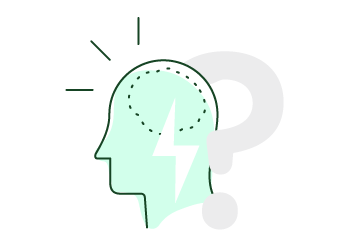Personal Productivity
How to Manage Your Energy to Be More Productive
AUTHOR: Francisco Sáez
The other day I met a friend for coffee. When we finished our coffees, we decided to go for a walk and continue the conversation for a little longer. Bad idea. The sun was blazing hot; the temperature 30ºC. I said goodbye and went home to continue the work I had planned to do that evening. Impossible. It took less than five minutes to realize that the increasingly intense headache caused by the sunstroke would not allow me to concentrate on what I had to do for a good while.
Was the evening completely lost? No, I couldn’t do anything that required a high effort of concentration or creativity, but I could do other things. I could lie on the couch and quietly read a few articles on marketing that I had pending. I did that. I could go and buy some office supplies I needed. I also did that.
In terms of productivity, the evening was as good as if I had done what had been planned all along. At the end of the day though, I did things that I should have done another time.
At GTD, one of the criteria you use to decide what will be your next move is your energy level, in its broadest sense. Sometimes, your mood can determine your energy level. Not feeling 100% fine when taking on a given task? No problem. Surely there are other things you can do at 50%.
Yes, it is easy to use this factor to your advantage when you are your own boss. The problem occurs when you are an employee in a company. Will your boss understand that lying around reading some articles is the most productive thing you can do right now? Probably not.
These days, the following situation is quite common: as our work requires more responsibility, we need to devote more hours to meet its demands—to be productive. Paradoxically, this increase in work hours causes us to become more stressed, more distracted and less committed to our work, ultimately leading to increased employee turnover rates and sick leaves in corporate environments.
In short, working more hours results in lower productivity. Not to mention the damage to physical, mental and emotional health that comes along with this when it becomes standard practice.
Therefore, working more hours is not the solution. To be more efficient, to obtain an optimum level of productivity, we should always work according to our energy level. Energy is, by definition, our ability to work.
Obviously, for this to happen, companies must look at employees differently. Not as someone to be exploited, but as someone who must be motivated to give his best.
Energy decreases as we use it, but it can be renewed systematically by performing certain rituals. Since energy is produced depending on the state of your body, mind and emotions, there are a few things you can do to manage it best:
- Break up your work sessions into blocks of 90-120 minutes, separated by breaks of 15-30 minutes. You need to rest to recover your energy levels.
- Keep your work space comfortable, clean, tidy, at a proper temperature and well-lit.
- Exercise regularly. Need I comment more on this?
- Sleep well. Eliminate all possible distractions from your sleep and establish a strict schedule.
- Eat healthy. You need to eat to maintain energy, but not all food is equally as good. Eat food with a low glycemic index, lean proteins, fruits and vegetables. Drink plenty of water throughout the day.
- Create positive emotional situations. Do things that you like and that excite you. Spend some time with friends, go to the cinema or visit a museum.
- Tune in with your inner self. Try meditation or yoga. Writing a journal is also a good idea.




No comments